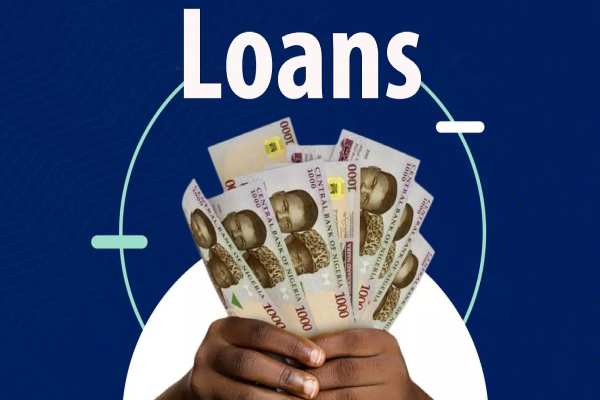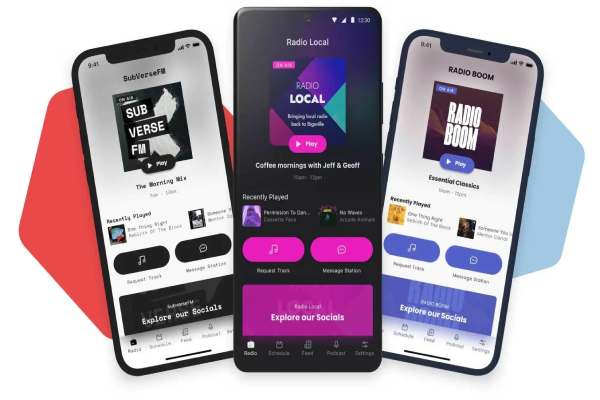The Major Types of Loans Available In Nigeria [2024]
The Major Types of Loans Available In Nigeria are discussed in this article. It may be of interest to you to learn that there are many sorts of loans available in the country today, depending on the terms and circumstances available.
Knowing what they are and how they vary can help you make critical judgments about which one you actually need at any given time, preventing you from falling into massive debts that will damage you in the long run.

Major Types Of Loans Available In Nigeria
A loan is defined as the lending of money by one or more persons, organizations, or other entities to other individuals, organizations, or entities, according to Wikipedia. The recipient (that is, the borrower) incurs a debt and is generally responsible for paying both interest and the principal amount borrowed until the loan is repaid.
Individuals or corporations borrow loans to meet specific financial demands, which they must repay with interest within a specified/agreed time period between the lender and the borrower.
Some loans may be granted provided the borrower agrees to offer the lender an asset such as a home as collateral, which will be written down in the loan contract to avoid any future legal difficulties.
People do not take loans lightly since they must carefully weigh the benefits and drawbacks before proceeding, and loans are taken for a variety of reasons, including but not limited to: business, real estate investment, schooling, medical expenditures, and vacation, to name a few.
As previously stated, repaying a loan entails repaying the loan amount plus interest as agreed upon by both parties. The interest rate can either be fixed for the length of the loan arrangement or variable, meaning it can fluctuate over time.
If the borrower’s loan is secured by collateral, such as a house, land, or other valuable property, the interest rate is lower.
ELIGIBILITY REQUIREMENT FOR LOAN AGREEMENTS IN NIGERIA
The following are the conditions for becoming qualified for loan agreements in Nigeria today. The following are some of the conditions for the borrower:
- Have a bank account that works.
- Maintain a healthy mental state.
- You must be of legal age.
- Be trustworthy and credible.
- Have an excellent credit score.
- Meet the KYC (Know Your Customer) requirement.
- Be able to repay the loan amount within the agreed-upon time frame.
TYPES OF LOANS AVAILABLE IN NIGERIA RIGHT NOW
In no particular order, the following are the primary forms of loans accessible in Nigeria:
LOAN WITH SECURITY
A secured loan, as the name indicates, is a loan arrangement between a lender and a borrower that needs assets as a form of security before the agreement can be formalized.
To secure this loan, a borrower must provide valuable assets to the lender as collateral, which is a requirement of the agreement, and failing to repay the loan within the agreed-upon time limit gives the lender the legal right to seize the collateral.
If the borrower fails to repay the loan on time, the lender may be forced to sell the collateral in order to recover the money given to them. All of this will, of course, be documented for future reference.
Secured loan applicants frequently borrow significant sums of money at lower interest rates since they have collateral that is worthy of the type of loan they are seeking from the lender. The debt can be paid over a lengthy period of time if both parties agree to it.
LOAN WITHOUT SECURITY
Because no security is required for this sort of loan, the interest rates are often high because the lender is taking a significant risk with the borrower. Unsecured loans, often known as personal loans, are not backed by any collateral.
As previously said, those who take out this sort of loan must repay it with interest, and this will be documented in writing for legal purposes. If the borrower fails to repay the loan on time, the lender may be forced to initiate a lawsuit against the borrower in a competent court of law in order to recover the funds.
LOANS WITH A SINGLE PAYMENT
Borrowers who take out single-payment loans must ask for a certain amount of money and repay the same amount in full on the agreed-upon date. Borrowers do not have to be concerned about paying interest on this sort of loan.
LOANS WITH MONTHLY PAYMENTS
This form of loan asks the borrower to pay back a portion of the loan amount in monthly installments, plus interest. The loan’s repayment dates are set at the outset.
LOANS FOR SALARY ADVANCE
Salary Advance loans are modest, unsecured loans for a limited period of time that rely on the borrower’s prior payroll and job records. As a Salary Advance recipient, you can pay it back with your next paycheck or over a certain period of time.
MORTGAGE
A mortgage is a loan taken out, particularly for the purpose of purchasing a property. A mortgage lender or a bank will give this loan to enable a person to acquire a home. The loan must be repaid within the stipulated time frame, and the borrower must offer security to the lender.
In Nigeria, mortgages include three components: principal, interest, and collateral. The main is the sum borrowed to buy a house, the interest is money paid on a monthly basis at a fixed rate for the use of money lent or for deferring debt repayment, and the collateral is the asset(s) used to secure the loan.
You can lose your house if you don’t return your mortgage on time. If you fail to repay your mortgage on time, a bank or building society can repossess your home if you don’t settle your debt in full.
If, on the other hand, you are able to pay back the loan with interest when it is due, the property becomes yours outright.
LOANS WITH A FIXED INTEREST RATE
When you take up a fixed-rate loan, the interest rate does not change for the length of the loan. Thus, a borrower’s future payments may be precisely predicted.
LOANS WITH VARIABLE RATES
A variable interest rate loan has an interest rate that fluctuates with market interest rates. A variable-rate loan, unlike a fixed-rate loan, has to change monthly payments that fluctuate with market interest rates.
LOANS FOR INSTALLATION
An installment loan, according to Investopedia, provides a borrower with a predetermined amount of money that must be repaid with regularly scheduled installments that may not be on a monthly basis but as agreed upon by the parties involved.
Each installment debt payment comprises the payback of a portion of the principal amount borrowed as well as the payment of interest on the loan.
LOANS THAT CAN BE CONVERTED
A convertible loan is a loan that, in most instances, may be repaid or converted into equity (assets with obligations or liabilities connected to them) at a later period.
Read Also: How to Get Instant Loan from GTBank Quick Credit
CONCLUSION
So far so good, that is all we have prepared for you on the types of loans that are available in Nigeria at moment.







